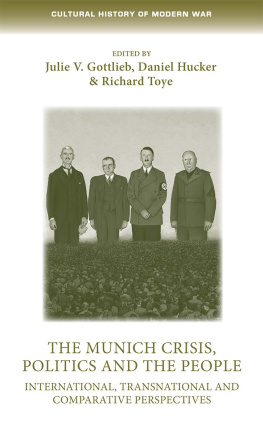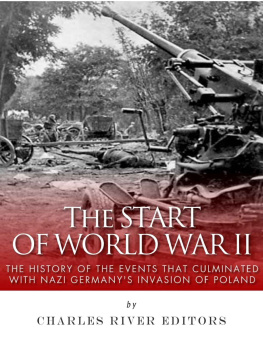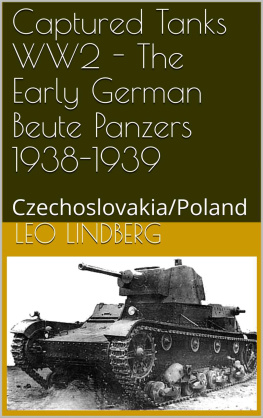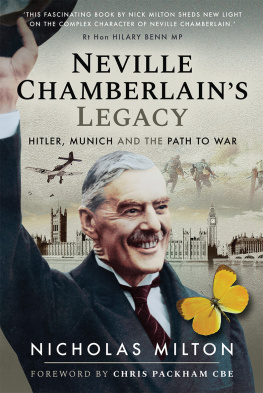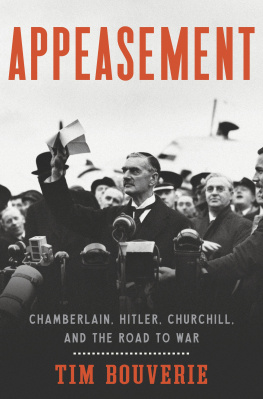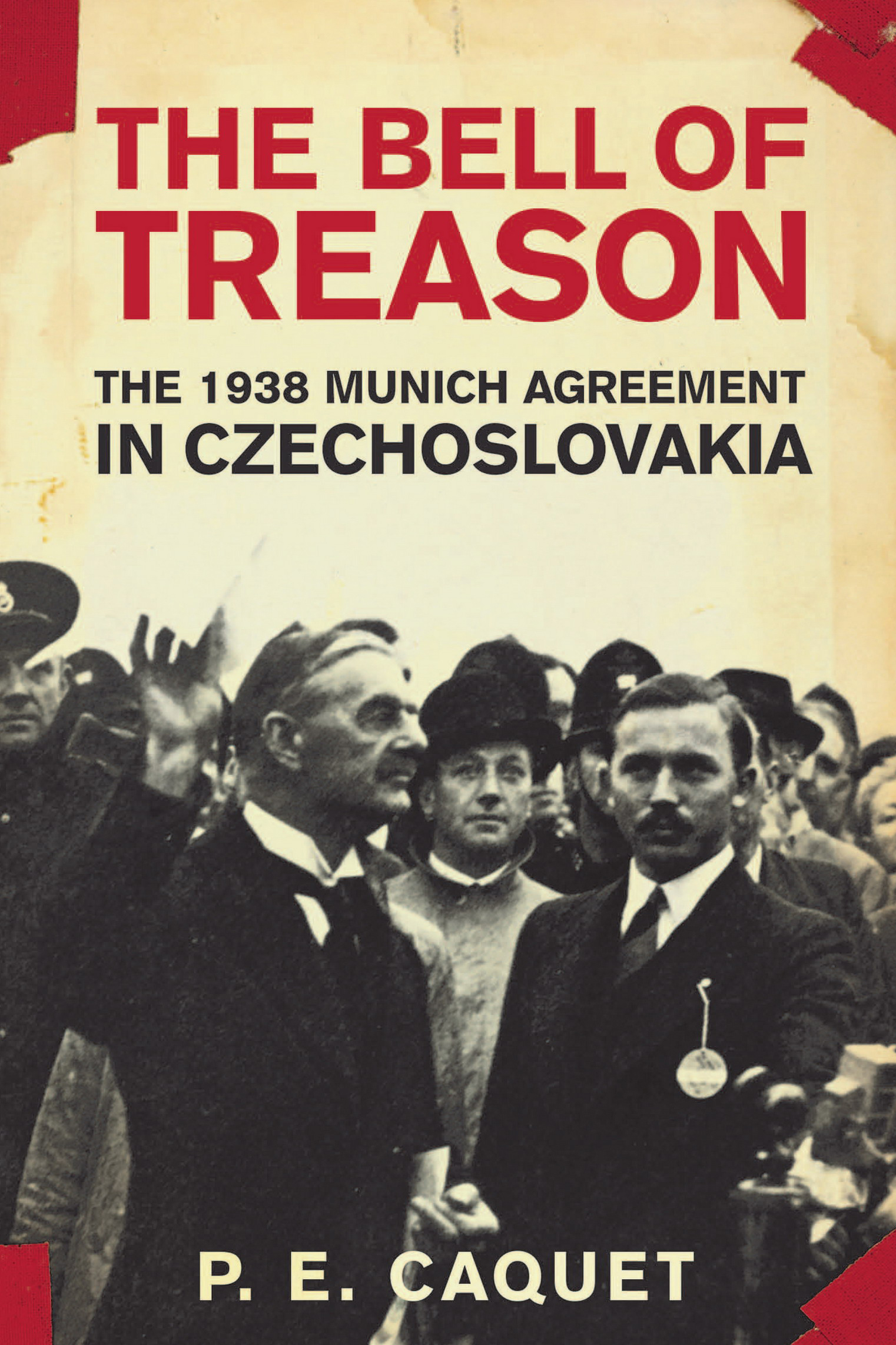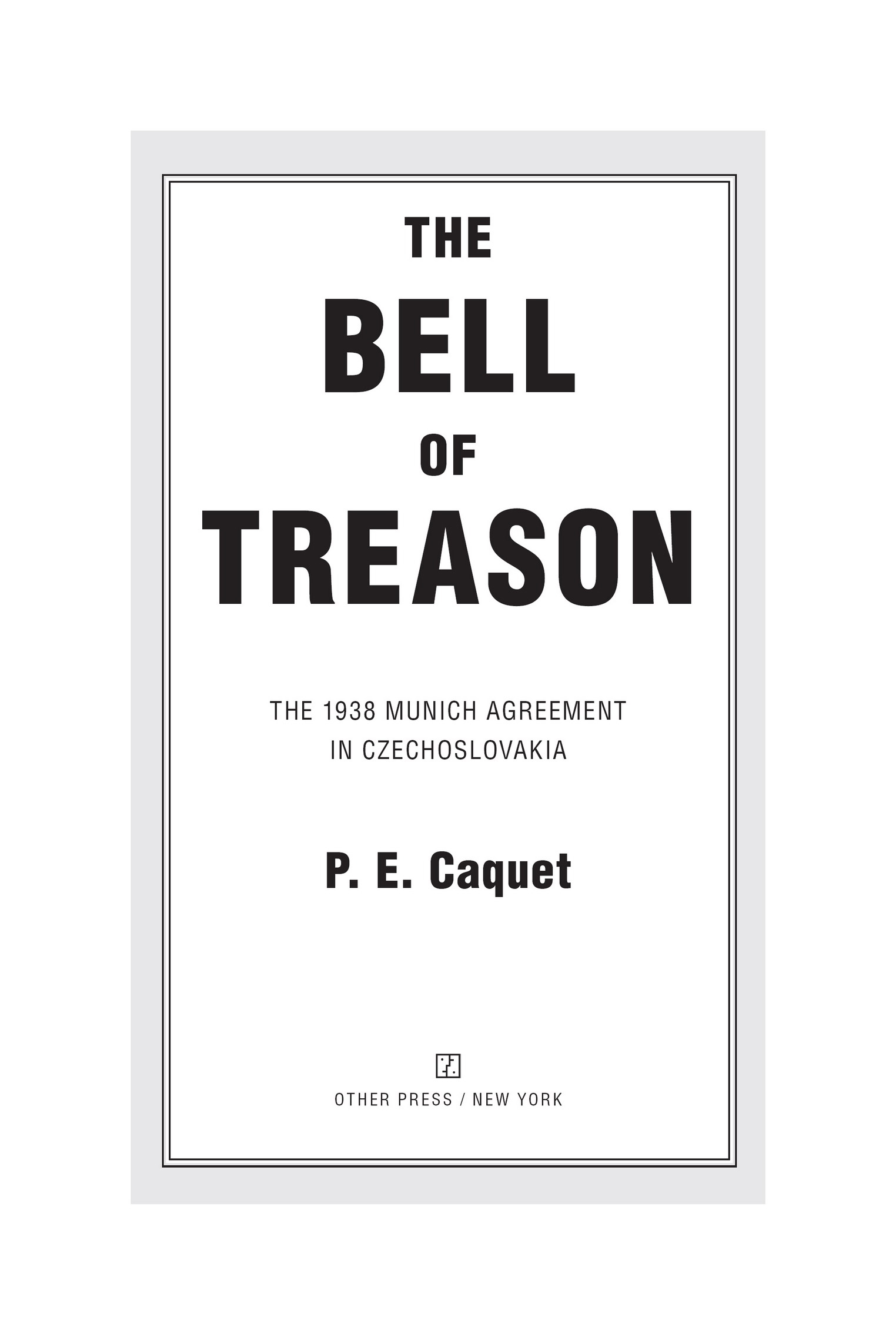ALSO BY P. E. CAQUET
The Orient, the Liberal Movement, and the Eastern Crisis of 183941
Copyright P. E. Caquet, 2018
First published in Great Britain in 2018 by Profile Books Ltd,
3 Holford Yard, Bevin Way, London WC1X 9HD
Endpaper maps by Sophia Caquet and the author.
Production editor: Yvonne E. Crdenas
Text designer: Jennifer Daddio
All rights reserved. No part of this publication may be reproduced or transmitted in any form or by any means, electronic or mechanical, including photocopying, recording, or by any information storage and retrieval system, without written permission from Other Press LLC, except in the case of brief quotations in reviews for inclusion in a magazine, newspaper, or broadcast. For information write to Other Press LLC, 267 Fifth Avenue, 6th Floor, New York, NY 10016.
Or visit our Web site: www.otherpress.com
The Library of Congress has cataloged the printed edition as follows:
Names: Caquet, P. E., author.
Title: The bell of treason : the 1938 Munich agreement in Czechoslovakia / P. E. Caquet.
Description: New York : Other Press, [2019] | First published in Great Britain in 2018 by Profile BooksTitle verso. | Includes bibliographical references and index. | Description based on print version record and CIP data provided by publisher; resource not viewed.
Identifiers: LCCN 2019002444 (print) | LCCN 2019009185 (ebook) |
ISBN 9781590510520 (ebook) | ISBN 9781590510506 (hardcover)
Subjects: LCSH: Munich Four-Power Agreement (1938) | EuropePolitics and government1918-1945. | Sudetenland (Czech Republic)History20th century. | GermansCzech RepublicSudetenlandHistory20th century. | CzechoslovakiaPolitics and government. | CzechoslovakiaForeign relationsGermany. | GermanyForeign relationsCzechoslovakia. | Great BritainForeign relationsGermany. | GermanyForeign relationsGreat Britain. | FranceForeign relationsGermany. | GermanyForeign relationsFrance. | World War, 1939-1945Causes.
Classification: LCC D727 (ebook) | LCC D727 .C29 2019 (print) | DDC 940.53/112dc23
LC record available at https://lccn.loc.gov/2019002444
Ebook ISBN9781590510520
v5.4
a
There tolls the bell of treason, the bell of treason
Whose hands have swung its rope?
Sweet France, proud Albion
The very ones we loved
FRANTIEK HALAS, ZPV ZKOSTI
CONTENTS
NOTE ON PLACE NAMES AND TRANSLATION
Many of the towns and villages cited here had both a Czech and a German name at the time this history describes. This book uses Czech names, both for consistency and because these are the names that can be found today. Exceptions are made for places with an accepted and well-recognized English or international name, e.g., Prague, Carlsbad, or Marienbad.
Numerous quotes presented here in English originate in material in Czech, Slovak, French, or German. Unless otherwise noted, they are in the authors translation.
IN THE BOAS GAZE
On Saturday, 12 March 1938, the Czechoslovak ambassador in London, Jan Masaryk, called on Lord Halifax, who had recently been appointed foreign secretary. The situation was urgent: as they met, German troops were marching through Austrian territory and toward Vienna. Hitler had finally launched the Anschluss, his long-planned annexation of Germanys smaller Alpine neighbor, and in the night his armies had crashed through the GermanAustrian border. The European chancelleries were yet to react, and it remained unclear what ramifications the attack might have. That these involved Czechoslovakia, whether as participant in a hypothetical intervention, merely as an interested observer of what went on beyond its southern frontier, or as the target of a further German advance, was not in doubt. Masaryk was concerned that this was only a first step. His hope was to convince his interlocutor to deal with Hitler firmly and ward off any attempts against his own country.
H ALIFAX : I have learnt a lot in the last few days, but I dont want to give up all hope that one day a dialogue will be possible with the Germans.
M ASARYK : Once they rule Europe, then yesuntil then, only an armed dialogue is possible.
You think so?
I am convinced of it.
I am new to the job. I only perceived it from a distance before, and even when I went to Berchtesgaden, I did not realize how complicated the situation was, as I do now. I understand, though, that Goering has assured Mastn [the Czechoslovak ambassador in Berlin] that they are not planning anything against Czechoslovakia. What value do you ascribe to that?
It is momentarily true. Even the boa constrictor, when it has eaten, needs a few weeks of digestion, and todays feast is worthy of Lucullus.
You are probably right. You said you need some gesture of moral support. I would very much like to help you, but I dont know what I can do.
Halifax was a conservative peer, Eton- and Oxford-educated, whose long political career had taken in various ministerial posts but whose only overseas stint had been as viceroy of India. He owed his elevation to the desire of his prime minister, Neville Chamberlain, to retain a more direct line of control over foreign policy. His predecessor as foreign secretary, Anthony Eden, had resigned a month before under a cloud, creating a vacancy for a less experienced and therefore more amenable candidate to the post.
Masaryk embodied his small nations twentieth-century tribulations. The son of Tom Garrigue Masaryk, a founding figure of the republic, Jan had been a headstrong youth. Before the First World War, he had emigrated to the United States, leading a penniless existence. On his return he was drafted into the Habsburg armies, where he rose to the rank of lieutenant and earned a medal of valor. After the Great War, with his father now president of a new Czechoslovakia, Masaryk embarked with fresh energy on a diplomatic career. Thanks to his adventures in the US and a brief marriage to an American woman, he boasted a fantastic command of any and all shades of the English language; of nuance and argot and profanity and slang in either British or American idiom.
Czechoslovakias motto was The truth prevails, taken from the fifteenth-century religious martyr Jan Hus. The truth prevails, but it can be such a chore, Masaryk liked to joke. In other words, after twenty years of stability, the door to frontier revision stood open.
The C.zechoslovak republic was born in the last days of the First World War, as the Habsburg Empire, having sued for peace, was crumbling. On 28 October 1918, a cross-party national council took control and proclaimed independence in Prague. Revolutionary takeovers followed across the country. Two days later, the same happened in Slovakia, where another group of representatives proclaimed its union with the Czechs in the small town of Turiansky Svt Martin. Within a month, the merged councils had established themselves as a provisional parliament and written a constitution. Abroad, a government in exile under the philosopher and politician Tom Masaryk and his close associate Edvard Bene had won Allied backing. By the end of the year, the new parliament had elected Masaryk as the republics first president.



